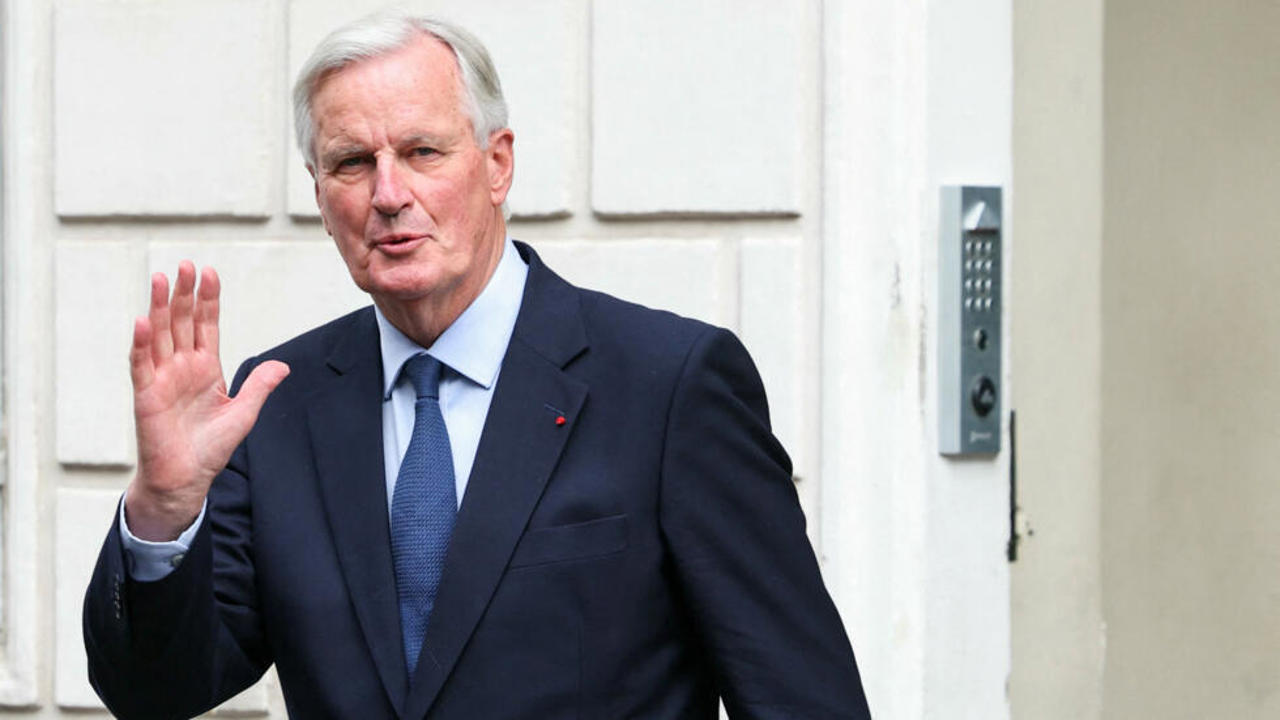Michel Barnier appointed as prime minister amid left-wing protests
Although the left emerged victorious, albeit in a somewhat fragmented manner, in the recent legislative elections, the prime minister appointed on Friday by President Emmanuel Macron, former European Commissioner Michel Barnier, is a figure more aligned with the right.
This decision greatly displeased the left-wing parties. Throughout the weekend, tens of thousands of people, responding to calls from youth organisations and the political party La France Insoumise (Unsubmissive France), marched in protest against Barnier’s appointment as prime minister.
Michel Barnier is affiliated with the Les Républicains (LR) party, which has dwindled in size, and he is a staunch advocate of strict immigration policies and tough social measures.
Even high school students joined the protests, answering the clear call from the High School Union, issued on August 27, after Emmanuel Macron’s refusal to appoint a prime minister from the New Popular Front (NFP). The mobilisation took on a completely new scale following Barnier’s appointment, which came after a prolonged delay. During this period, 81 left-wing deputies signed a petition calling for the dismissal of the President of the Republic.
Many people had voted for Macron to oppose the far right, and now feel betrayed by what they perceive as a departure from his electoral promises. The new prime minister is twice the age of his predecessor, Gabriel Attal, who, at 34, was the youngest prime minister in the history of France. "Youth is a mistake that we increasingly correct with each passing day," Barnier retorted, quoting Raymond Poincaré, when critics raised concerns about his age.
In contrast, Barnier’s appointment as head of the French government was met with relief within European institutions, where he is seen as a skilled negotiator, capable of brokering compromises.
Barnier, who served as European Commissioner twice (for Regional Policy from 1999 to 2004, and for the Internal Market and Financial Services from 2010 to 2014), was also the architect of the December 2020 agreement that has since governed post-Brexit relations between the European Union and the United Kingdom. He understands the workings of the EU like few others, having built an unmatched network in Brussels.
Not particularly well-liked by his fellow French politicians, Barnier has always managed to establish himself in Brussels, where his strong pro-European stance is highly appreciated. He remains far removed from the arrogance often attributed to French diplomacy.
During negotiations, Barnier leaves no one out. In the four-year post-Brexit talks between Brussels and London, he treated both small and large countries equally, tirelessly visiting all capitals. He regularly reported the progress of his work to heads of state, European parliamentarians, national officials, and even social partners, with the precision of clockwork.
While not very charismatic and not especially interested in technical details, Barnier, who often refers to himself as "the man from the mountains" due to his Savoyard roots, possesses a remarkable sense of compromise—a trait not highly valued in France's Fifth Republic but essential when reaching agreements within the EU’s 27-member framework and the European Parliament.
“If he handles the French National Assembly as he did the Brexit negotiations, he will succeed,” is the general sentiment in Brussels.
Author: Dan Alexe
Translation by Iurie Tataru






